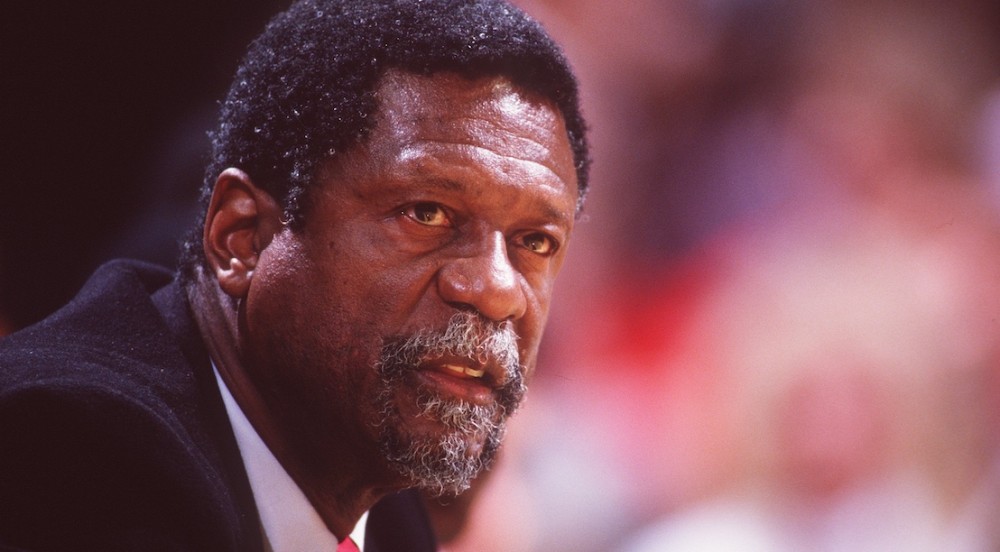Bill Russell, an 11-time NBA champion and a Naismith Hall of Famer passed away on Sunday, reports ESPN. He was 88.
Russell’s passing was confirmed in a statement on social media and arrangements for his memorial service will be announced soon.
"But for all the winning, Bill's understanding of the struggle is what illuminated his life," the statement said. "From boycotting a 1961 exhibition game to unmask too-long-tolerated discrimination, to leading Mississippi's first integrated basketball camp in the combustible wake of Medgar [Evers'] assassination, to decades of activism ultimately recognized by his receipt of the Presidential Medal of Freedom ... Bill called out injustice with an unforgiving candor that he intended would disrupt the status quo, and with a powerful example that, though never his humble intention, will forever inspire teamwork, selflessness and thoughtful change.”
"Bill's wife, Jeannine, and his many friends and family thank you for keeping Bill in your prayers,” the statement continued. “Perhaps you'll relive one or two of the golden moments he gave us, or recall his trademark laugh as he delighted in explaining the real story behind how those moments unfolded. And we hope each of us can find a new way to act or speak up with Bill's uncompromising, dignified, and always a constructive commitment to principle. That would be one last, and lasting, win for our beloved #6."
Russell began his illustrious basketball career at the University of San Francisco in 1953. As a collegiate star, he was a two-time All-American, won two straight NCAA championships leading USF to a 55-game winning streak, and won a gold medal at the 1956 Olympics.
Over his 13 years in Boston, he was named the NBA's MVP on five separate occasions (1958, 1961–1963, 1965), leading the Celtics to the NBA Finals 12 times and winning 11 titles. In his last two championships seasons, he was both a player and the first Black coach in the history of the NBA.
For his career, he averaged 15.1 points, 22.5 rebounds and 4.3 assists per game.
An activist during the Civil Rights movement, Russell, Jim Brown, Kareem Abdul-Jabbar, and some of the greatest Black athletes in the country gathered in Cleveland to lend their support to Muhammad Ali who refused to participate in the Vietnam War in 1967.
In 1961, Russell led a protest with a group of players that boycotted an NBA exhibition game over civil rights
"We've got to show our disapproval of this kind of treatment or else the status quo will prevail," he said of the protest, "We have the same rights and privileges as anyone else and deserve to be treated accordingly. I hope we never have to go through this abuse again. But if it happens, we won't hesitate to take the same action again."
Because of his commitment to the Black freedom struggle, Russell's daughter Karen Russell recalled the overt racism that her father was subjected to in Boston. In an article in the New York Times, she spoke about the threats that he faced while leading the greatest dynasty in NBA history.
"When he first went to Boston in 1956, as the Celtics' only Black player, fans and sportswriters subjected him to the worst kind of unbridled bigotry," she wrote in the article.
She also recalled how her family's home was vandalized after a weekend away.
"Our house was in shambles, and ''N***A'' was spray-painted on the walls. The burglars had poured beer on the pool table and ripped up the felt. They had broken into my father's trophy case and smashed most of the trophies," she wrote.
After retiring from the Celtics, Russell hosted radio and television talk shows and wrote newspaper columns on general topics. In 1973, Russell took over the Seattle SuperSonics, then a 6-year-old expansion franchise that had never made the playoffs, as its coach and general manager, helping to turn the team into a playoff contender.
10 years after leaving Seattle, Russell was named coach of the Sacramento Kings in the 1987-88 season. After posting a 17-41 record, Russell departed midseason.
Russell became the first Black player to be inducted into the Naismith Memorial Basketball Hall of Fame in 1975, and in 1980 he was voted Greatest Player in the History of the NBA by the Professional Basketball Writers Association of America.
In 2009, the MVP trophy of the NBA Finals was named in Russell's honor and he presented the trophy for many years.
Boston honored Russell with a statue at City Hall Plaza in 2013.
“Bill Russell's DNA is woven through every element of the Celtics organization, from the relentless pursuit of excellence to the celebration of team rewards over individual glory, to a commitment to social justice and civil rights off the court," the Celtics said in a statement. "Our thoughts are with his family as we mourn his passing and celebrate his enormous legacy in basketball, Boston, and beyond."
"I cherished my friendship with Bill and was thrilled when he received the Presidential Medal of Freedom," NBA Commissioner Adam Silver said in a statement on Sunday. "I often called him basketball's Babe Ruth for how he transcended time. Bill was the ultimate winner and consummate teammate, and his influence on the NBA will be felt forever."
Many took to Twitter to pay tribute to the Celtics legend including former President Barack Obama who awarded Russell with the Medal of Freedom in 2011.
"Today, we lost a giant," Obama said in a statement Sunday. "As tall as Bill Russell stood, his legacy rises far higher —both as a player and as a person. Perhaps more than anyone else, Bill knew what it took to win and what it took to lead."
We at EBONY offer our prayers and deepest condolences to the family and friends of Bill Russell.













